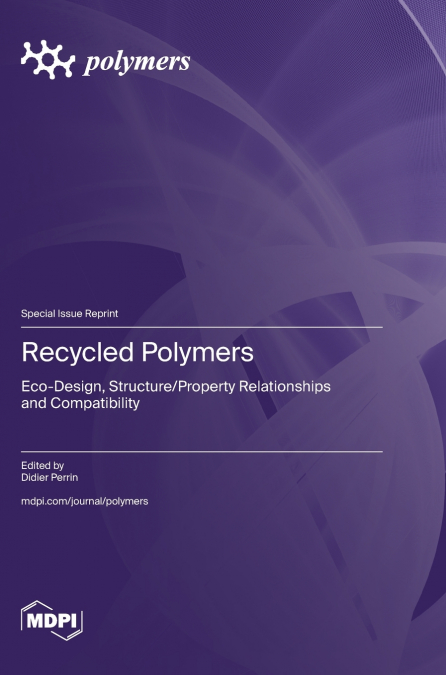
 Librería Desdémona
Librería Desdémona
 Librería Samer Atenea
Librería Samer Atenea
 Librería Aciertas (Toledo)
Librería Aciertas (Toledo)
 Kálamo Books
Kálamo Books
 Librería Perelló (Valencia)
Librería Perelló (Valencia)
 Librería Elías (Asturias)
Librería Elías (Asturias)
 Donde los libros
Donde los libros
 Librería Kolima (Madrid)
Librería Kolima (Madrid)
 Librería Proteo (Málaga)
Librería Proteo (Málaga)
The efficient ecodesign of secondary raw materials from recycled multiphase polymer systems is performed through the study of various things, such as:The compatibility of mixtures of recycled polymers where work on knowledge of the miscibility of mixtures depends on the different rates and the nature of the constituents;The aging of recycled polymers in terms of the structuring of end-of-life polymers, which may have changed their starting structure due to degradation or aging;The compatibility of mixtures of polymers recycled by additive treatments and/or reactive pre-treatments and integration of coupling agents or reactants in situ at the interface of the mixtures; this compatibility can be linked beforehand to reactive pre-treatments (plasma, corona, heat/chemical treatments) on each of the phases.The selection of these three themes follows a study cycle logic on the development of formulations of blends of recycled polymers, in which compatibilization affects the morphology and therefore the miscibility of blends of polymers in relation to their structure.